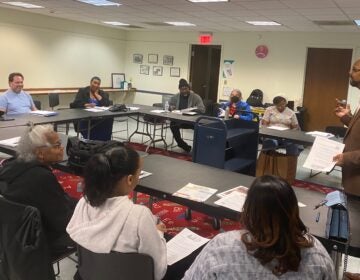Interactive simulation gives Philadelphians a glimpse at the harsh realities many former prisoners face when reentering society
A simulation at the Constitution Center Monday highlighted the challenges formerly incarcerated people often face when attempting to reenter society.
Listen 1:07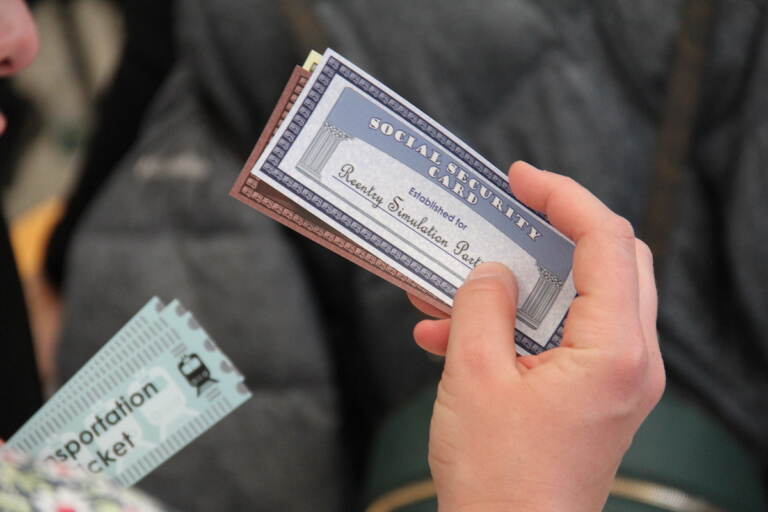
Some packets contained several forms of identification, including a social security card. Without at least three forms of identification, you wouldn't be able to get a job or even meet with a probation officer during the simulation.(Cory Sharber/WHYY)
A simulation gave people a chance to walk in the footsteps of someone recently released from prison — facing challenges one often encounters when reentering society, such as paying rent, meeting with a probation officer, and having enough money to buy food.
Each participant of Monday’s simulation at the National Constitution Center was given a kit, which included a “life card” that had them following set schedules over four weeks. For example, week two may require someone to attend a probation hearing while also having child support payment due that same week.
In order to make money, participants had to get a job, or they could donate blood or plasma or sell off various items at the pawn shop.
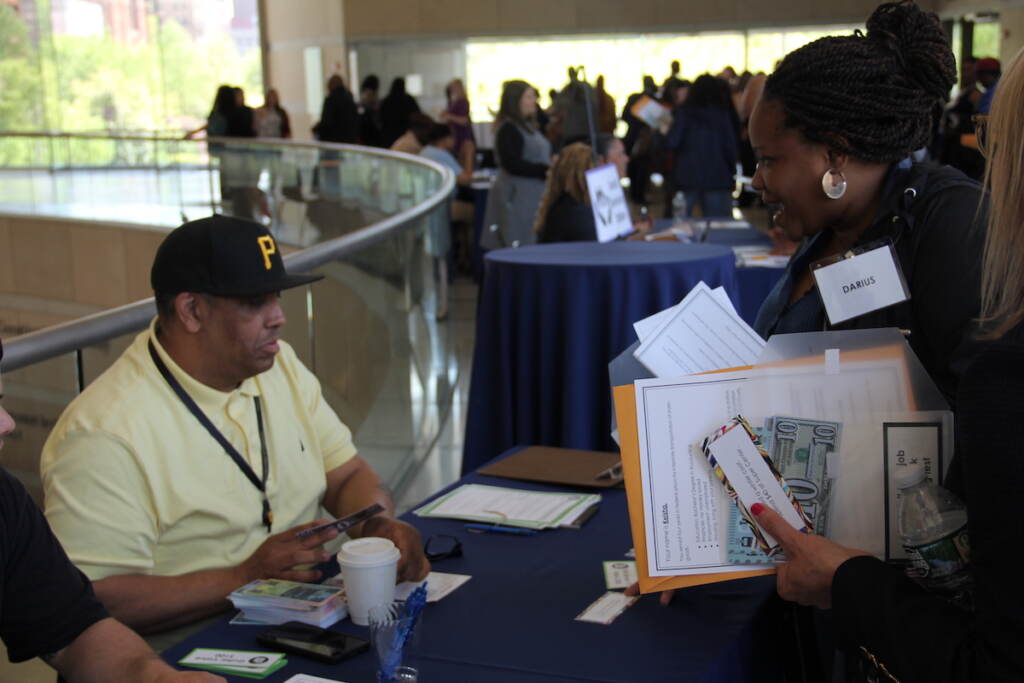
Jacqueline Romero, U.S. attorney for the Eastern District of Pennsylvania, whose office organized the simulation, said most participants start laughing as if they were playing a game.
“They’re doing things that they think are funny, like someone drops their Social Security card. ’Oh, well, I’ll just pick that card up and use it for myself because now I can get through the exercise,’ and they’re trying to win the game,” Romero said. “But, in doing those things, you just committed a crime. You’re going back to prison. I think it dawns on people maybe midway through the exercise, ‘Oh my God, this is someone’s actual life that I’ve been laughing about.’”
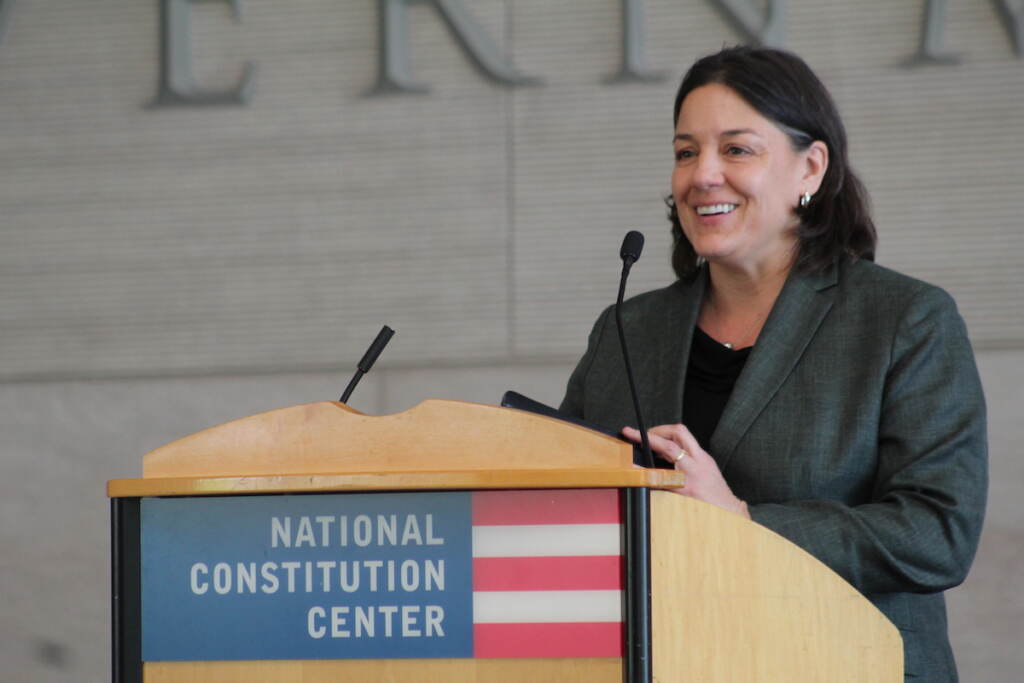
Most stations, or checkpoints, throughout the simulation required three forms of identification: a state ID card, a birth certificate, and a social security card. However, not all of the kits came equipped with identification, meaning they had to take the time to fill out additional forms. Some participants without an ID found themselves missing meetings or remaining unemployed, ultimately leading them back to jail.
Aiden Cropsey was among the dozens who participated in the simulation. His kit came equipped with a job, so he was able to make money throughout. However, he eventually drew a “wild card,” forcing him to take on another challenge, or in Cropsey’s case, an addiction relapse.
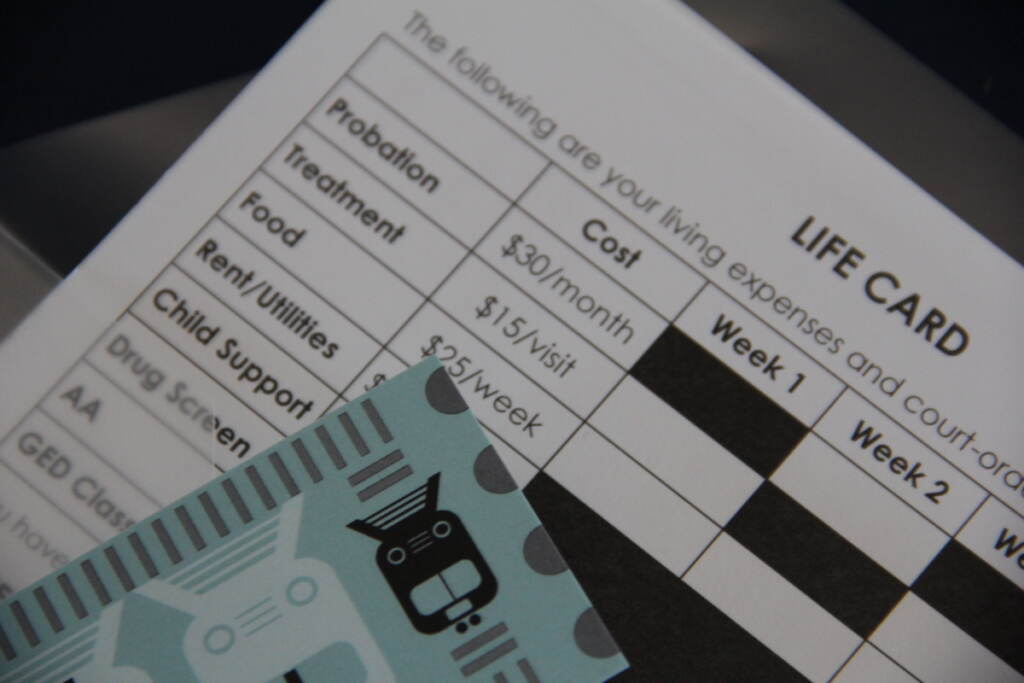
“It was just really disappointing,” Cropsey said. “Even though I was going to AA meetings, I [the simulation character] was still struggling to stay sober, so yeah, it was hard.
And the bills kept piling up for his simulation.
“Everything requires money, so I just kept showing up for work,” Cropsey said. “Even if I was drunk or using, I made sure I went to work.”
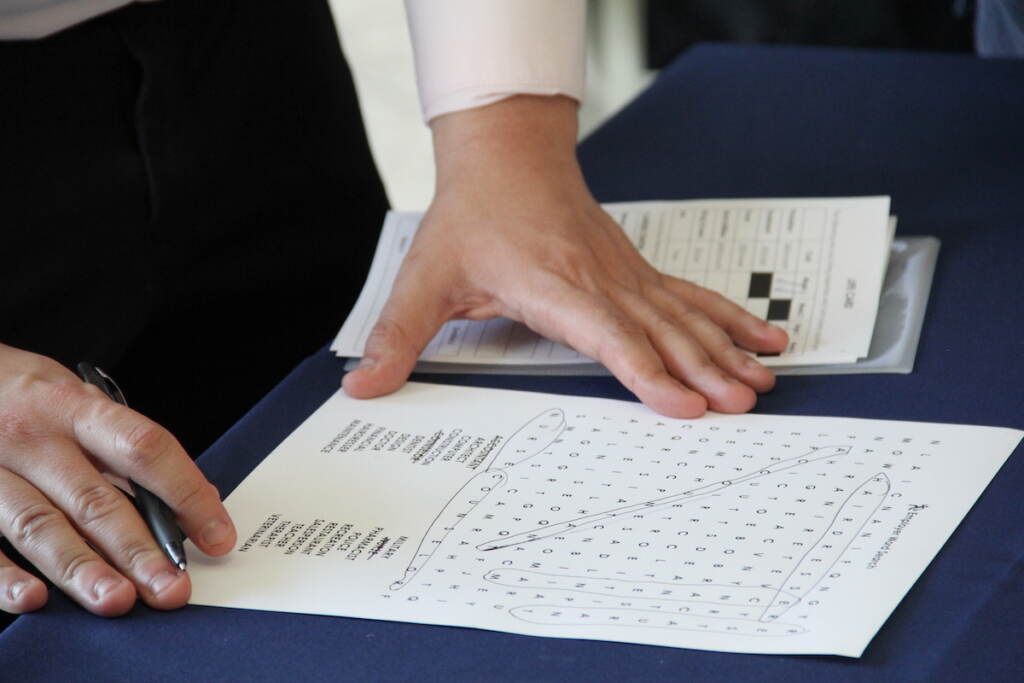
In the real world, Cropsey, a social work intern for the Pennsylvania Innocence Project, says he’s seen firsthand the struggles people face during reentry. Still, the simulation put the challenges into a new perspective.
“I think there’s something different about being in it and trying to do the hustle and seeing everyone else struggling and just getting worn down.”
Donnell Drinks, the Leadership Development and Engagement Coordinator for the Campaign for the Fair Sentencing of Youth, spoke to attendees following the simulation. Drinks experienced the reentry process firsthand after serving over 27 years in prison and said the process takes a toll on more people than just the parolee.
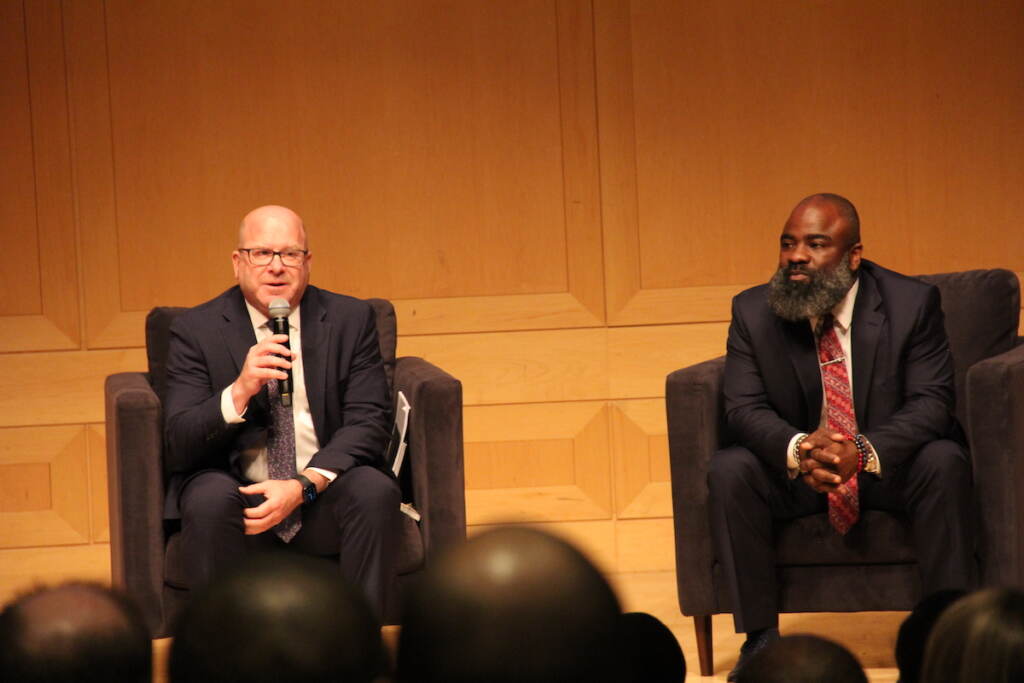
“There are families involved on both sides of the equation, and if we can keep that in mind and extend the respect that we want our family members to receive and we’re giving it to those going through the process, I think that’s the beginning of putting a Band-Aid on the system,” Drinks said.
The U.S. Attorney’s Office for the Eastern District of Pennsylvania hosted the event as part of Second Chance Month, which aims to support the safe reentry of millions of prisoners each year.
64.7% of releases from a Pennsylvania state prison in 2016 were rearrested or reincarcerated within three years of release, according to a 2022 report from the Pennsylvania Department of Corrections. A slight increase from 2008, when 62% were rearrested or reincarcerated within three years.
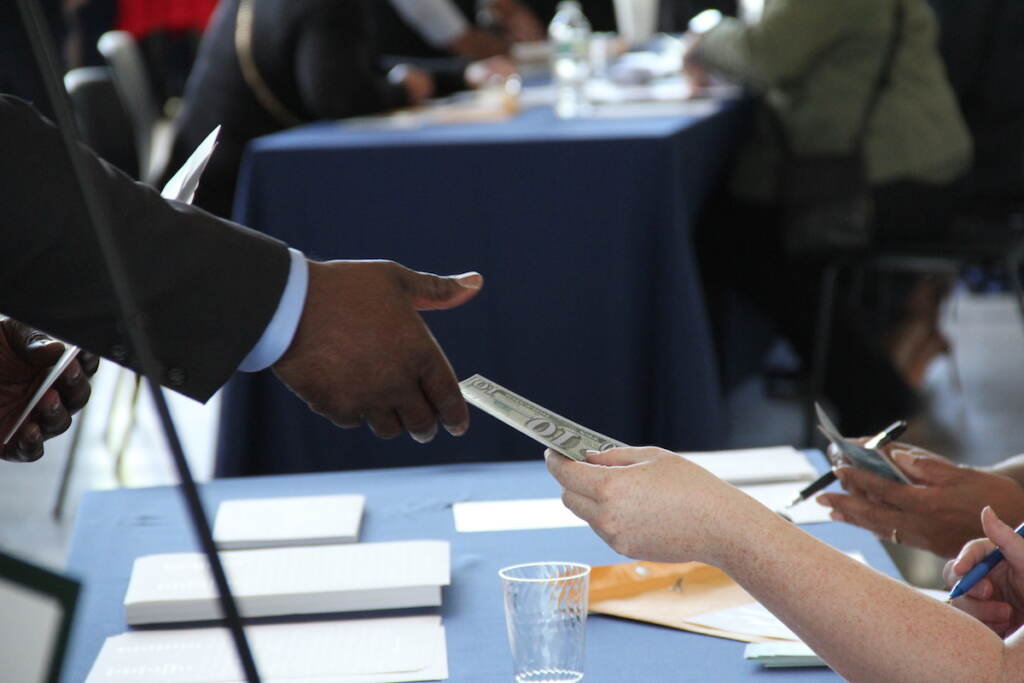
WHYY is your source for fact-based, in-depth journalism and information. As a nonprofit organization, we rely on financial support from readers like you. Please give today.




